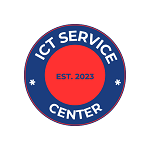Uses of ICT including communication, education, healthcare, entertainment, banking, e-commerce, automation, research, transportation, and governance. These applications demonstrate the versatility and importance of ICT in today’s society.
Information and Communication Technology (ICT) has become an indispensable tool in various aspects of daily life, revolutionizing the way we communicate, learn, access healthcare, and conduct business. From enabling seamless communication to improving healthcare delivery, ICT has transformed countless industries worldwide.
Its impact can be seen in education, finance, entertainment, research, and even transportation. As we delve into the myriad uses of ICT, it becomes evident that this technological marvel plays a pivotal role in shaping modern society. Its influence extends to governance, e-commerce, and automation, showcasing the breadth and depth of its applications. Through this comprehensive exploration, we can gain a deeper understanding of the diverse uses and significance of ICT.
Understanding The Basic Concept Of ICT
Understanding the basic concept of ICT is crucial in today’s digital world, where technology plays a pivotal role in shaping our daily lives. ICT, which stands for Information and Communications Technology, encompasses a wide range of technologies that facilitate communication, information dissemination, and data management. In this article, we will delve into the definition, components, and the importance of ICT in various sectors.
Definition Of ICT
ICT, or Information and Communications Technology, refers to the utilization of various technologies to manage, process, and transmit information. It involves the use of hardware, software, networks, and other digital resources to create, store, manipulate, and communicate information in various forms.
Components Of ICT
The components of ICT comprise hardware (such as computers, servers, routers, and storage devices), software (including applications, operating systems, and programming languages), networking infrastructure (like LAN, WAN, and the internet), and data management systems (including databases and information repositories).
Importance In Various Sectors
ICT plays a pivotal role in various sectors such as education, healthcare, businesses, government, and entertainment. It enables seamless communication, efficient data management, automation of processes, and enhanced productivity. From online learning platforms in education to electronic health records in healthcare, and from e-commerce in businesses to e-government services, ICT has revolutionized the way operations are conducted across diverse industries.

1. ICT In Education
Information and Communication Technology (ICT) has revolutionized the education sector, offering exciting opportunities to enhance learning, facilitate teaching, and improve overall educational experiences. Let’s explore how ICT is utilized in education to leverage its benefits for both educators and students.
E-learning
The integration of ICT in education has facilitated the development and implementation of e-learning platforms. With e-learning, students have the flexibility to access course materials, lectures, and assignments online, allowing for greater accessibility and convenience. This approach fosters a more engaging and interactive learning environment by leveraging multimedia elements, virtual simulations, and interactive assessments to cater to diverse learning styles.
Interactive Whiteboards
Interactive whiteboards have transformed traditional teaching methods by offering a dynamic and visually stimulating platform for educators to deliver lessons. These interactive boards allow teachers to integrate various forms of media, such as videos, images, and interactive software, making lessons more engaging and interactive for students. Through this innovative technology, educators can craft compelling presentations that foster student participation and knowledge retention.
Access To Educational Resources
ICT provides students and educators with seamless access to a wealth of educational resources, including digital libraries, academic journals, and educational websites. This access opens up a world of knowledge beyond traditional classroom boundaries, empowering students to delve deeper into subjects and educators to incorporate a diverse range of resources into their teaching. Moreover, the availability of open educational resources contributes to cost-effective and inclusive learning experiences for all.
2. ICT In Healthcare
In healthcare, Information and Communication Technology (ICT) has revolutionized the way patients are treated and healthcare services are managed. The use of ICT in healthcare has enhanced efficiency, accuracy, and accessibility, leading to improved patient care and outcomes. Let’s explore three key applications of ICT in healthcare: Electronic Health Records, Telemedicine, and Health Information Systems.
Electronic Health Records
Electronic Health Records (EHR) are digital versions of patients’ paper charts, containing medical history, diagnoses, medications, treatment plans, immunization dates, allergies, radiology images, and laboratory test results. EHRs facilitate secure and instantaneous access to patient information, enabling healthcare providers to make well-informed decisions.
Telemedicine
Telemedicine involves the use of ICT to provide remote clinical services to patients. It enables healthcare professionals to consult, diagnose, and treat patients at a distance using telecommunications technology. By integrating video conferencing and digital imaging, telemedicine expands access to healthcare, particularly for individuals in remote or underserved areas.
Health Information Systems
Health Information Systems (HIS) are comprehensive ICT systems designed to manage health-related data. They integrate various healthcare-related data sources, including patient records, administrative information, and financial data. HIS plays a crucial role in optimizing healthcare operations, enhancing decision-making, and ensuring the smooth flow of information across healthcare facilities.
3. ICT In Business
ICT, or Information and Communication Technology, has revolutionized the way businesses operate by enabling better communication, data management, and automation. In today’s digital landscape, the integration of ICT in business processes has become imperative for staying competitive and efficient. Here are some of the key uses of ICT in the business realm.
Communication And Collaboration Tools
Effective communication is vital for any business. ICT facilitates various communication tools such as email, instant messaging, video conferencing, and virtual meeting platforms. These tools empower teams to collaborate in real-time, regardless of their physical location, fostering productivity and efficiency.
Data Management And Analysis
In the realm of data management, ICT plays an essential role in storing, organizing, and analyzing vast amounts of data. Database management systems and business intelligence software enable businesses to make informed decisions by extracting valuable insights from their data, ultimately driving growth and innovation.
Automation And Digital Marketing
ICT enables businesses to automate repetitive tasks through software solutions and digital platforms, freeing up valuable time and resources. Moreover, digital marketing tools such as CRM systems, social media management platforms, and email marketing software allow businesses to reach and engage with their target audience effectively, driving customer acquisition and retention.
4. ICT in Governance And Public Services
Information and Communication Technology (ICT) plays a pivotal role in transforming the way governments administer services and information to the public, enhancing efficiency, transparency, and accessibility. It encompasses various aspects that revolutionize governance and public services, including E-Government, Public Information Systems, and Cybersecurity and Data Privacy.
E-government
E-Government leverages ICT to digitize and streamline government operations, services, and interactions with citizens. Through online portals, citizens can access government information, apply for permits or licenses, pay taxes, and engage in electronic voting, enhancing transparency and efficiency in governance and service delivery.
Public Information Systems
ICT facilitates the development of public information systems that enable governments to disseminate information to the public effectively. These systems support the delivery of timely updates, emergency alerts, and public announcements, improving communication and engagement with the masses.
Cybersecurity And Data Privacy
As the reliance on digital platforms increases, ensuring cybersecurity and safeguarding data privacy are critical for governments. ICT aids in the implementation of robust cybersecurity measures and data protection policies to mitigate cyber threats and uphold citizen privacy, fostering trust in government digital initiatives.
5. ICT in Communication And Networking
In the modern world, Information and Communication Technology (ICT) has evolved to become an integral part of our daily lives. This advancement has hugely impacted communication and networking, resulting in significant changes in the way we connect and interact with others. From social media platforms to video conferencing, and the rise of mobile communication technologies, ICT has revolutionized the way we communicate and stay connected.
Social Media
Social media is a key aspect of ICT in communication and networking. Platforms such as Facebook, Twitter, and Instagram provide individuals and businesses with powerful tools to connect, share information, and engage with others on a global scale. Businesses utilize social media to build brand presence, engage with customers, and conduct targeted marketing campaigns, while individuals use it for networking, sharing experiences, and staying informed about world events.
Video Conferencing
Video conferencing, made possible by ICT, has transformed the way individuals and businesses conduct meetings and collaborate across distances. Applications such as Zoom, Skype, and Microsoft Teams have made it easier to connect face-to-face, share screens, and collaborate in real time, regardless of geographical location. This has led to increased efficiency, reduced travel costs, and improved productivity in various professional settings.
Mobile Communication Technologies
Mobile communication technologies, facilitated by ICT, have revolutionized the way people communicate and access information. The widespread use of smartphones, combined with mobile apps and messaging platforms like WhatsApp and Signal, has made communication instantaneous and accessible from anywhere. Additionally, mobile technology enables individuals to access social media, video conferencing, and other communication tools on the go, making it an essential component of modern networking and connectivity.
Frequently Asked Questions Of What Are The 5 Uses Of ICT ?
What Are The Main Uses Of ICT In Education?
ICT in education is used for interactive learning, accessing e-resources, improving teaching efficiency, and promoting distance learning. It also enhances student engagement, fosters digital literacy, and provides personalized learning experiences.
How Does ICT Benefit Healthcare Sector?
ICT in healthcare improves patient care, facilitates electronic medical records, enhances telemedicine, and enables remote patient monitoring. It also streamlines administrative processes, optimizes resource allocation, and supports medical research and training.
What Are The Significant Uses Of ICT In Business?
ICT is essential for communication, data management, automation of processes, market research and analysis, and customer relationship management in business. It also enables e-commerce, enhances collaboration, and supports remote work and virtual meetings.
Conclusion
To sum up, the uses of ICT are undeniably diverse and impactful. From communication to education, healthcare, and business, ICT plays a pivotal role. Its ability to streamline processes, enhance connectivity, and drive innovation proves its enduring significance. Embracing ICT enables individuals and organizations to thrive in the digital age.

